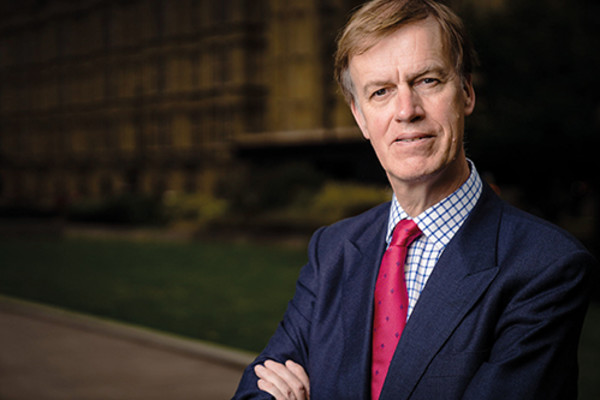

The Work and Pensions Committee, chaired by Stephen Timms, is now well into its inquiry on the impact of pensions freedoms five years on.
While the increasing number of pension scams has been exacerbated by coronavirus, the industry has been critical of the regulators playing catch-up and the growing bills being levied upon advisers.
But the mild-mannered Mr Timms says he will reserve judgement on how the industry’s regulators have performed until after the review.
“The British Steel case was absolutely dreadful and is one of the reasons it is so important to be doing this work now on pension scams,” Mr Timms says.
“There are more scams emerging the whole time, and all the regulators need to be vigilant to protect us. I welcome the publicity campaign the Financial Conduct Authority has been promoting recently specifically on scams.
“Let’s see what conclusions we draw from our inquiry. I’ve no doubt once we have completed phase one on scams we will have something to say about the way the regulators have been behaving.”
Scams
The scale of the problem is the reason why pension scams make up the first phase.
Since 2017, £30.9m has been reportedly lost to pension scammers, according to complaints filed with Action Fraud.
And in a hearing in March 2020 the then head of the FCA, Andrew Bailey, told MPs on the Treasury Committee he thought the pension freedoms had been introduced too quickly, adding the regulatory system has been in a “catch-up process” since.
Mr Timms says: “With Covid-19, the opportunity for scamming is probably greater than ever and the dangers here are very big. I think it is important that the department responds to a lot of calls that have come from all sorts of places for us to do some work on this.”
Guidance
The second phase of the WPC’s review will look at the choices people make when they access their pensions, as there are concerns over the low take-up of government guidance services.
“The pension freedoms were launched alongside a guidance guarantee. Pension Wise was set up to provide free guidance for those accessing their defined contribution pensions,” Mr Timms says.
“The people who use Pension Wise seemed pretty pleased and gave it positive feedback, but there were not many of them.
“There have been recent trials by The Money and Pensions Service showing that you can nudge people and that does increase take-up, but there are still lots of people who opt out of receiving free guidance, so I think there is some issue there we need to look at.”
The third part of the review will focus on how people plan to save the amount they need for retirement.
The committee wants to look at the December 2017 review of auto-enrolment, which set out a number of recommendations to increase the amount saved through auto-enrolment.
These include: lowering the age of auto-enrolment from 22 to 18; and removing the lower earnings limit, so that contributions are calculated from the first pound rather than the current arrangement where people can start opting in from £6,240.
He says: “In their response, the government indicated they wanted to implement those changes by mid-2020. Now, we have not really heard very much since then, so we want to look at that.”
Wider issues
He adds the WPC wants to “look at the gender pensions gap and pensions savings for the self-employed. This is how we see the next three phases of this enquiry panning out over the next year or so”.
Mr Timms says deciding to take on the role of chairman of the committee was driven by the same desire he had 26 years ago when he started out as an MP.
“I very quickly realised that for people coming to see me in my councillor surgery who did not have a job, the one thing that made a big difference for them was getting into work,” Mr Timms says.
“Employment policy has therefore been a great interest of mine all the way through my political work. It is at the heart of the work of this committee.”
Mr Timms was pensions minister in 1999 and again in 2005-2006, as well as shadow pensions minister from 2010-2015.
Mr Timms says when the pension freedoms were introduced at the time he was worried about what the consequences could be.
He adds: “Looking back, there is no doubt there have been significant gains and the extra freedoms pension savers have had to choose what to do with their money has been very welcome to many.
“But the worries expressed five years ago have not gone away.”
The other issues the committee wants to address include reducing the current wait time of at least five weeks for people receiving their Universal Credit payments for the first time and the confusion that many people face trying to locate various small pots of pension they might have accrued.
Mr Timms said: “There is a growing body of evidence that moving to Universal Credit leaves many reliant on food banks, falling seriously behind with their rent, and even experiencing increased levels of psychological distress.
“The government’s response is that there is no proof that Universal Credit – and in particular the wait for a first payment – is the direct cause of those difficulties.
“So the Department for Works and Pensions needs to commission research, and quickly, to find out what lies behind these deeply worrying findings. Our social security system should not be leaving people without the money they need for food and heating.”
Ima Jackson-Obot is deputy editor at FTAdviser and Financial Adviser



